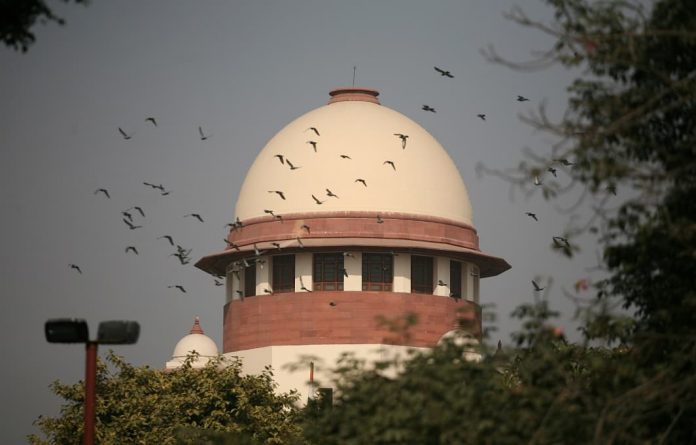New Delhi: A highly interesting and timely PIL had come before the Supreme Court today. The petition had sought directions to the HRD Ministry on waiver of fees for primary level students and also a waiver of extra fees charged under different heads by schools. This was for students’ parents who were under severe financial stress because of the pandemic.
The top court’s bench of Justices Ashok Bhushan and R. Subhash Reddy dismissed the PIL, but granted liberty to the petitioner to approach the high courts.
The plea was from the NGO Public Police. The chairman of Public Police is former Chief Justice of India and ex- chairman of the National Human Rights Commission, Justice K. G. Balakrishnan. Other members include former high court judges, former senior IAS officers, former senior IPS officers and some distinguished members of civil society.

Senior Counsel Pradeep Rai appeared for the petitioner and argued that some of the schools are charging full tuition fee, transportation fee, lab fee, library fee, development fee and annual fee etc, for three months in advance and some schools are charging a new fee under the head of e-education.
The petitioner further submitted that the payment of fees for public and private educational institutes stands due and the students and parents are not in any appropriate financial condition to make such payments under so many heads as charged by the schools. This is either due to loss of wages or deduction of wages or loss of jobs during this pandemic, putting the parents under immense financial stress.
The petition says that, under the above circumstances, forcing parents to pay fees for the last quarter and upcoming quarter would further drain them financially.
The petition names a few institutions, such as Adarsh Bal Niketan, Maa Saraswati Shishu Mandir, Singh Public School, Falenda Village, L S Memorial School.
The petitioner also stated that most schools conducted online education mandatorily for the enrolled students. The commencement of online classes deprived 25 percent of the EWS category of students because they do not have smartphones or computers or any form of internet connection. The inferior quality online education is not a substitute for education in a “physical” class.
Considering the pitfalls and adverse impact of online classes, such online classes have been banned by the Karnataka government as well as in the state of Madhya Pradesh for kindergarten to Class-7, said the petition.
Read Also: Plea filed in Rajasthan HC seeking to stop salary, allowances of MLAs staying at hotels
The petition said that considering the above, even the CBSC has made online classes optional for all the students.
– India Legal Bureau


